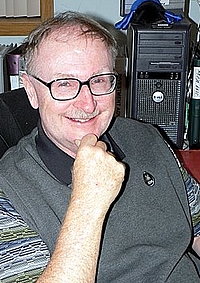![]()
Search
Recent Posts
- ChangingAging.org Redesign -- Please Bookmark!
- Disaster in Buffalo
- Power Up Friday
- Blanchard WinsDays
- Kevin Frick writes...
- Monkhouse Monday
- Getting Closer!
- Blanchard WinsDays
- Power Up Friday
- My Pick for Health and Human Services
- Understanding Health Care Reform
- Facts Are Stubborn Things: Social Security Edition
- Monkhouse Monday
- Localism is Coming
- Krugman Can't Wait...
Recent Comments
Category Archives
- AGING 100
- Aging
- Culture
- Dementia
- Eden Alternative
- Erickson School
- Green House
- Health Policy
- Longevity
- Media
- Rockets
Monthly Archives
- February 2009
- January 2009
- December 2008
- November 2008
- October 2008
- September 2008
- August 2008
- July 2008
- June 2008
- May 2008
- April 2008
- March 2008
- February 2008
- January 2008
- December 2007
- November 2007
- October 2007
- September 2007
- August 2007
 Subscribe to this blog's feed
Subscribe to this blog's feed
Announcements

Blog Data
« GAO Head David Walker is Out | Main | AARP U@50 Winners! »
February 18, 2008 |Permalink |Comments (0)
12 People who Are Changing Aging
Or your retirement, to be exact. The Wall Street Journal over the weekend looked into their crystal ball and profiled 12 folks, including myself, "whose work, in effect, is shaping the future of retirement."
From the Encore section of the WSJ, editor Glenn Ruffenach explains:
One thing we try to do with each issue of Encore is to get you to think about retirement and later life -- how you might spend your time and money. As it turns out, a lot of people are thinking about your retirement, and our cover story tells you what they have in mind.Kelly Greene, a staff reporter in The Wall Street Journal's Atlanta bureau, asked experts in aging across the country to identify those individuals whose ideas and work are likely to have the biggest impact on the future of retirement. The 12 people she profiles already are pushing their plans out of offices and labs and into older adults' lives. We think it makes for an instructive and fascinating read.
We at ChangingAging.org agree. We'll feature all 12 of the WSJ's profiles over the next couple of weeks. Today -- The Numbers Guy
William BengenIt's the most frequent question, and biggest concern, for many people approaching retirement: How big a nest egg will I need, and how do I make it last?
William Bengen is working on that.
Mr. Bengen, a certified financial planner in El Cajon, Calif., has already achieved what amounts to rock-star status in the retirement-planning business. His pioneering research in the 1990s gave rise to the "4% rule": Withdraw no more than about 4% a year from your nest egg, and it's highly likely that your savings will last 30 years. That finding has already helped to establish budgets and spending patterns for numerous retirees.Today, Mr. Bengen, age 60, continues to refine his research. In 2006, he introduced a method of withdrawing funds from nest eggs that tailors the 4% rule to individual circumstances. (It's online at www.fpanet.org/journal. Click on "Past Issues & Articles," then on "Past Issues," and go to August 2006.) And now, he is researching, he says, "the possibility that dividend-paying stocks, particularly those that increase dividends over time, might provide a better retirement resource than the S&P 500." As Mr. Bengen explains: "The thesis is that those have at least as high a total return as S&P 500 stocks, and they have lower volatility.... If you have stocks that don't go down as much in the bear markets, you're better off."
Mr. Bengen doesn't see himself as shaping baby boomers' financial future. He says he simply wants to help his 60 or so clients.
"I was starting to get some clients who were planning for retirement," he recalls, "and they were asking me, 'How much can I take out, and how should I set up my investments?' And I couldn't find a thing substantiated by any research."
-- By Kelly Greene, The Wall Street Journal
Tomorrow -- Harnessing Technology
(Or read ahead here)















